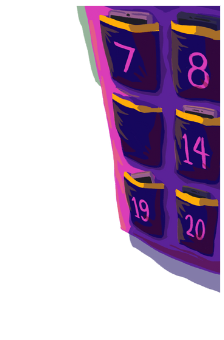On March 9, students will begin taking the SAT in a new adaptive digital format, a shift that will reshape the standardized-testing landscape for millions of high school students.
The new exam will be taken on a student’s or a school-issued device, and will be partitioned into two — rather than the current three — sections: Reading and Writing, and Math. The test will also be 46 minutes shorter.
This change follows a 2021 pilot project conducted by the College Board, which showed that a digital SAT was less stressful for 80% of students in comparison to its pencil-and-paper counterpart. The current paper SAT will no longer be offered starting March 9.
The test will also be adaptive, meaning students’ performance on the first set of questions affects the difficulty of the following set. Difficult problems that are correctly answered will yield higher scores than easier questions, though the final score will still be out of 1600.
Given these changes, students who have spent time preparing for the print exam, such as sophomore Archer Jin, have had to alter their study habits.
“I’d rather do the old type because everything I’ve practiced is related to that,” Jin said.
Junior Sophia He echoed Jin’s sentiments.
“I’m not a fan of the digital SAT because I feel like I’ve already spent time preparing for the paper one, and having it suddenly switch to digital means I have to adapt to a new system,” she said.
Still, Assistant Principal of Testing Rebecca Shen-Lorenson noted that the SAT is just one of many exams going digital, and students taking the exam during their junior year will already have had practice with the digital PSAT — administered for the first time in October 2023.
“I’m hoping that moving from paper and pencil is actually going to be more effective and advantageous for students,” she said.
Because students are allowed to bring their own devices to the exam, however, some have expressed concerns about academic honesty. Shen-Lorenson doubts that cheating will be an issue, especially considering that students will receive different adaptiveq uestions. Additionally, according to the SAT Terms and Conditions on the College Board website, violation of any policies related to test security can result in a dismissal from the test center, a score cancellation or a test-taking ban, depending on the severity of the offense.
Although many students believe that their performance on the SAT will decide their future, Shen-Lorenson urges them to consider the larger picture.
“For the SAT, (students) should not put too much pressure on themselves because it is only one point of reference for universities,” she said. “Just take a deep breath. Remember that you’re trying your best and if this is your first time taking the SAT, look at it as your first experience (for) what to expect next time.”






















